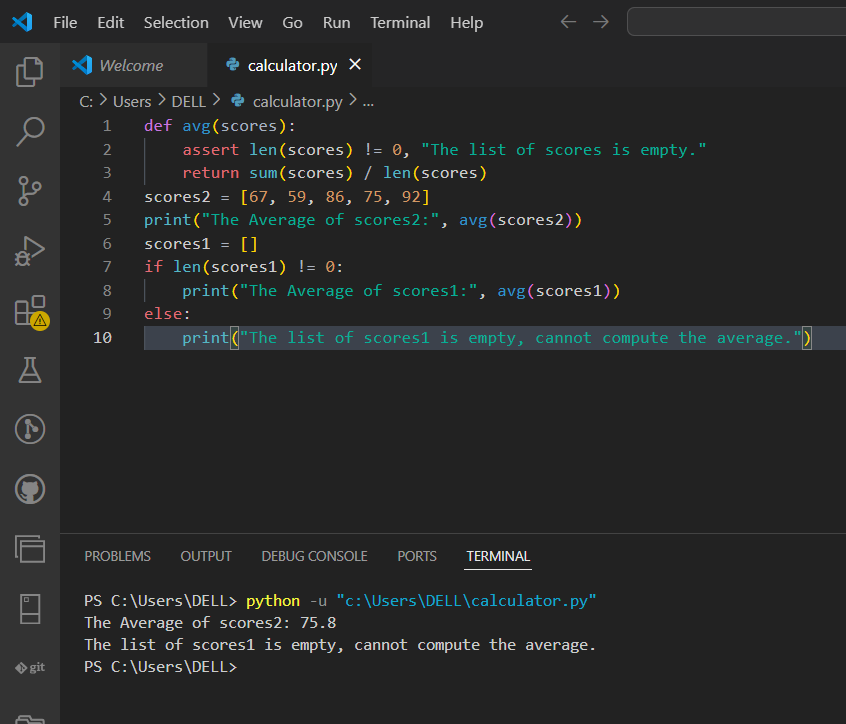Python assert Keyword
In Python, the assert keyword is a useful debugging tool. Essentially, it allows developers to test assumptions within their code, catching unexpected conditions that may lead to critical issues. For example, consider a scenario where we’re developing a function for division—the divisor should never be zero. With assert, we can confidently ensure this condition is met, and if not, Python raises an AssertionError with an optional custom error message.
What is assert and How Does it Work?
The assert keyword functions as a Boolean expression. It determines if a condition is true or false. If the condition is True, the program continues to the following line of code. If the condition is False, Python returns an AssertionError and terminates the application. By doing so, assert acts as an internal checkpoint that helps prevent errors from cascading further into the application. This behavior makes assert invaluable for catching unrecoverable issues, such as “file not found” errors, before they can cause additional complications.
In a broader context, assertions are particularly helpful for quality assurance, ensuring that the code performs as expected and quickly alerting developers when critical conditions aren’t met.
Download New Real Time Projects :-Click here
Syntax of the assert Keyword
The syntax for using assert is simple and straightforward:
assert condition, "optional_error_message"
In this case, condition is the statement or phrase to be evaluated.. If it returns False, the optional_error_message is displayed as part of the AssertionError message, providing helpful information for troubleshooting.
Why Use Assertions?
Assertions are a valuable debugging tool because they:
- Confirm that expected conditions hold true.
- Stop execution when an error is detected, preventing potential issues from spreading.
- Serve as internal self-checks, which provide immediate feedback if something goes wrong.
By using assertions, developers can maintain higher code quality and identify logic errors early in the development process.
Common Use Cases for assert
- Testing Function Outputs: Validate that a function produces the expected results.
- Input Validation: Check that function arguments or inputs fall within acceptable ranges.
- Code Testing: Used within test cases to ensure various conditions are met.
Examples of assert in Action
Let’s look at two examples that demonstrate how assert works and how it can prevent runtime errors.
https://updategadh.com/category/php-project
Example 1: Calculating the Average Score
In this example, we use assert to ensure that a list of scores is not empty before attempting to calculate an average.
def avg(scores):
assert len(scores) != 0, "The list of scores is empty."
return sum(scores) / len(scores)
scores2 = [67, 59, 86, 75, 92]
print("The Average of scores2:", avg(scores2))
scores1 = []
if len(scores1) != 0:
print("The Average of scores1:", avg(scores1))
else:
print("The list of scores1 is empty, cannot compute the average.")
Output:
The Average of scores2: 75.8
AssertionError: The list of scores is empty.

Explanation:
In this code, we pass two lists: scores2 (which contains values) and scores1 (which is empty). The assert statement checks that scores is not empty. Since scores2 meets this requirement, the program calculates and prints the average. However, when scores1 is passed, the assertion fails, and an AssertionError with the message “The list of scores is empty” is raised.
Example 2: Preventing Division by Zero
This example shows how assert can prevent a division by zero error.
x = 7
y = 0
print("x / y value is:")
assert y != 0, "Divide by 0 error"
print(x / y)
Output:
x / y value is:
AssertionError: Divide by 0 error
Explanation:
Here, we attempt to divide x by y, but since y is zero, the assert statement raises an AssertionError with the message “Divide by 0 error,” preventing an undefined operation.

Summary
The assert keyword is a simple yet powerful debugging tool in Python. By validating assumptions and conditions, assertions help identify potential errors before they disrupt program execution. Employed wisely, assert statements make code more reliable and easier to maintain, serving as a proactive measure for quality assurance in Python applications.
- python assert with message
- Python assert Keyword
- python assert examples
- python assert in production code
- python assert type python
- Python assert Keyword
- python assert python documentation
- python assert multiple conditions
- python assert vs raise
- python3 assert
- Python assert Keyword: An Essential Debugging Tool
- python assert keyword example
- python assert keyword w3schools
- python assert keyword github
- Python assert Keyword: An Essential Debugging Tool
- Python assert Keyword
🎓 Need Complete Final Year Project?
Get Source Code + Report + PPT + Viva Questions (Instant Access)
🛒 Visit UpdateGadh Store →